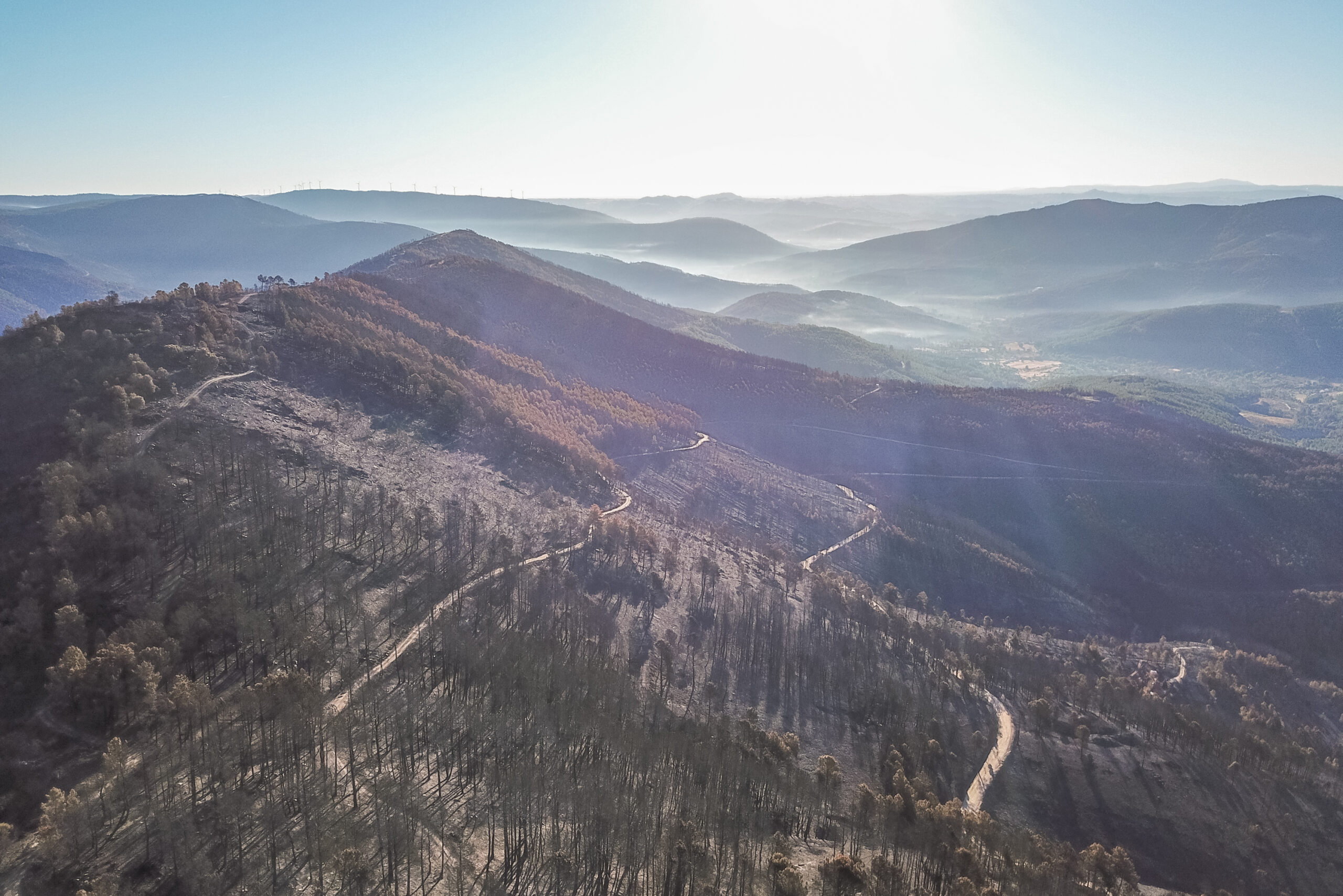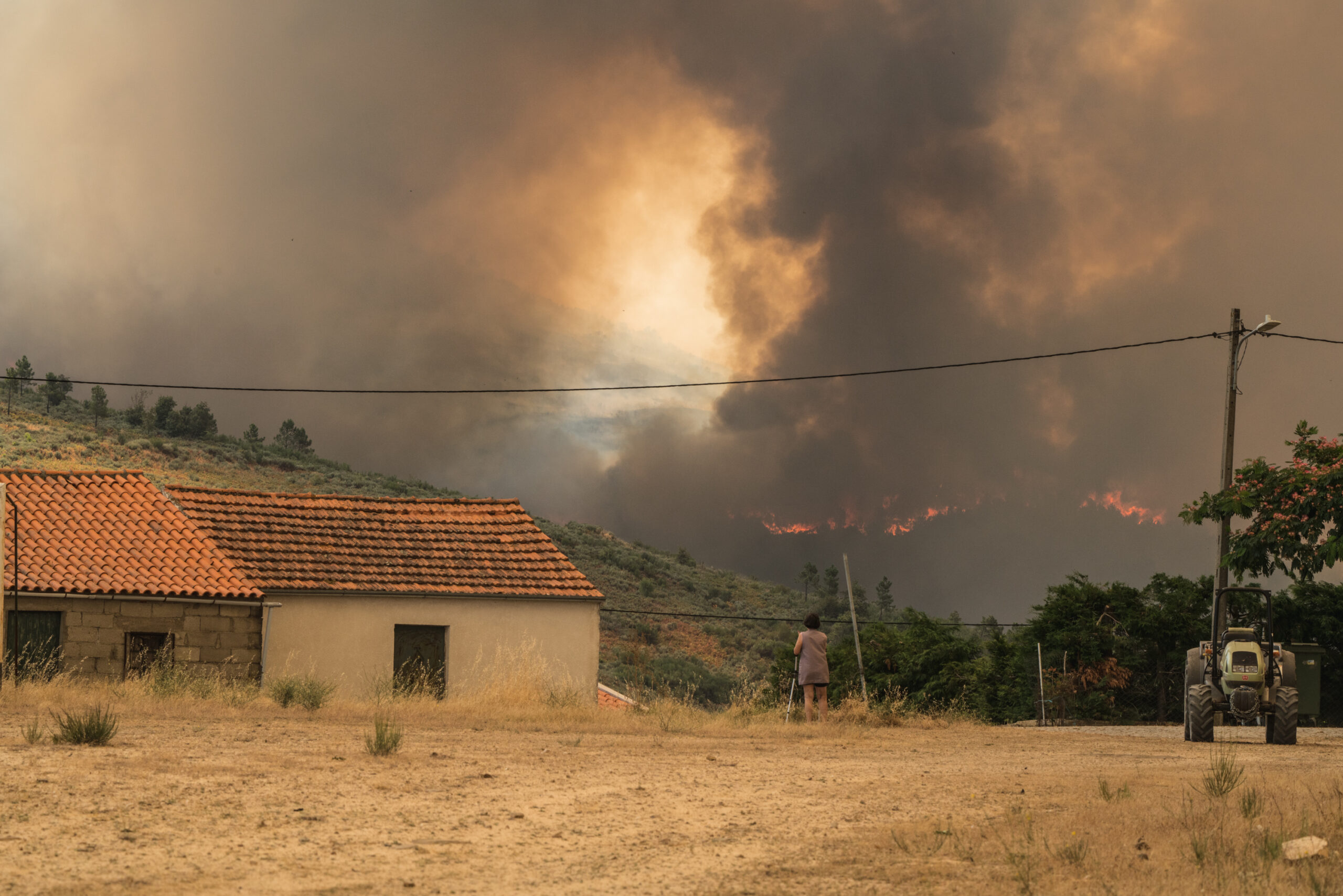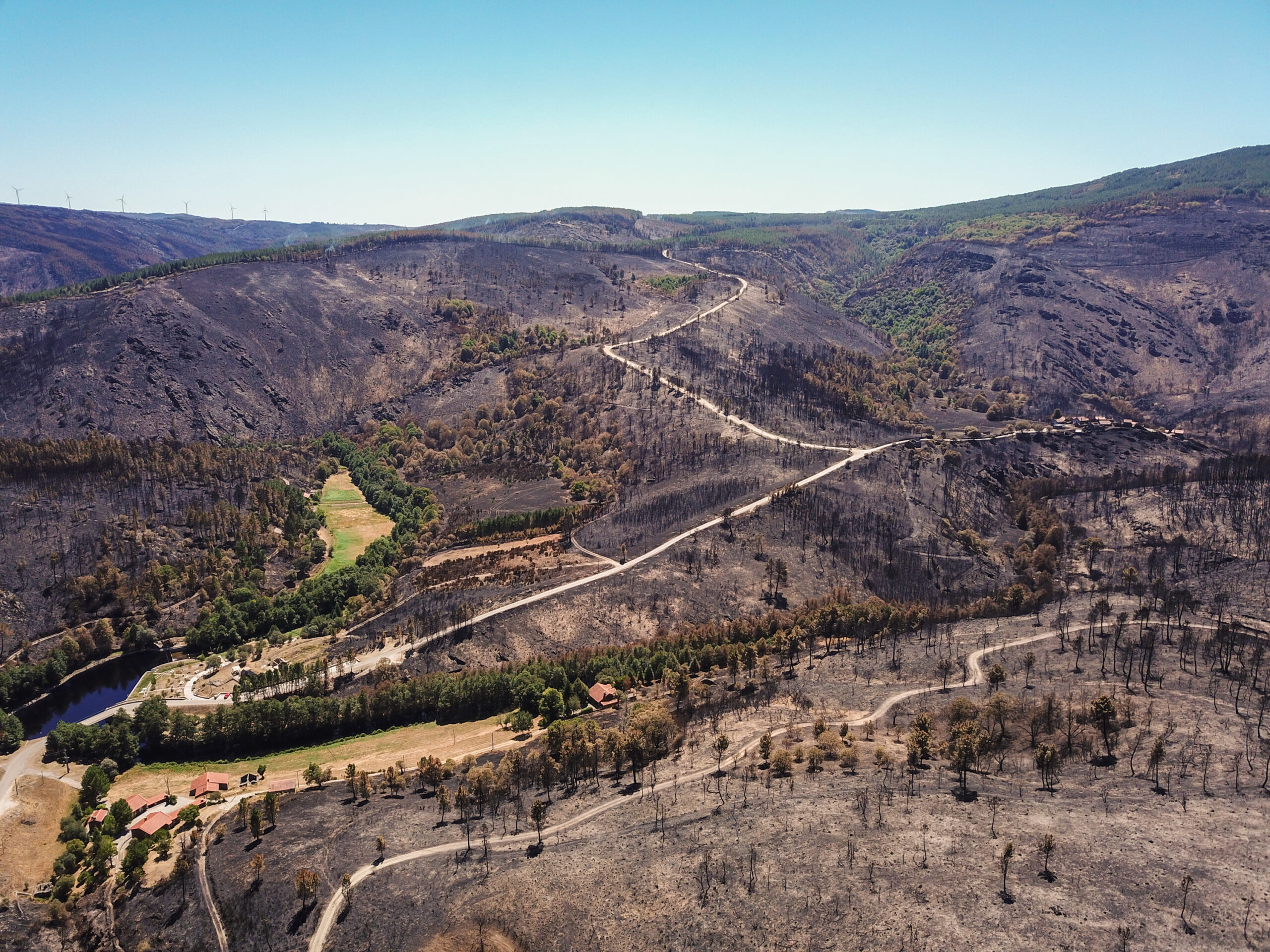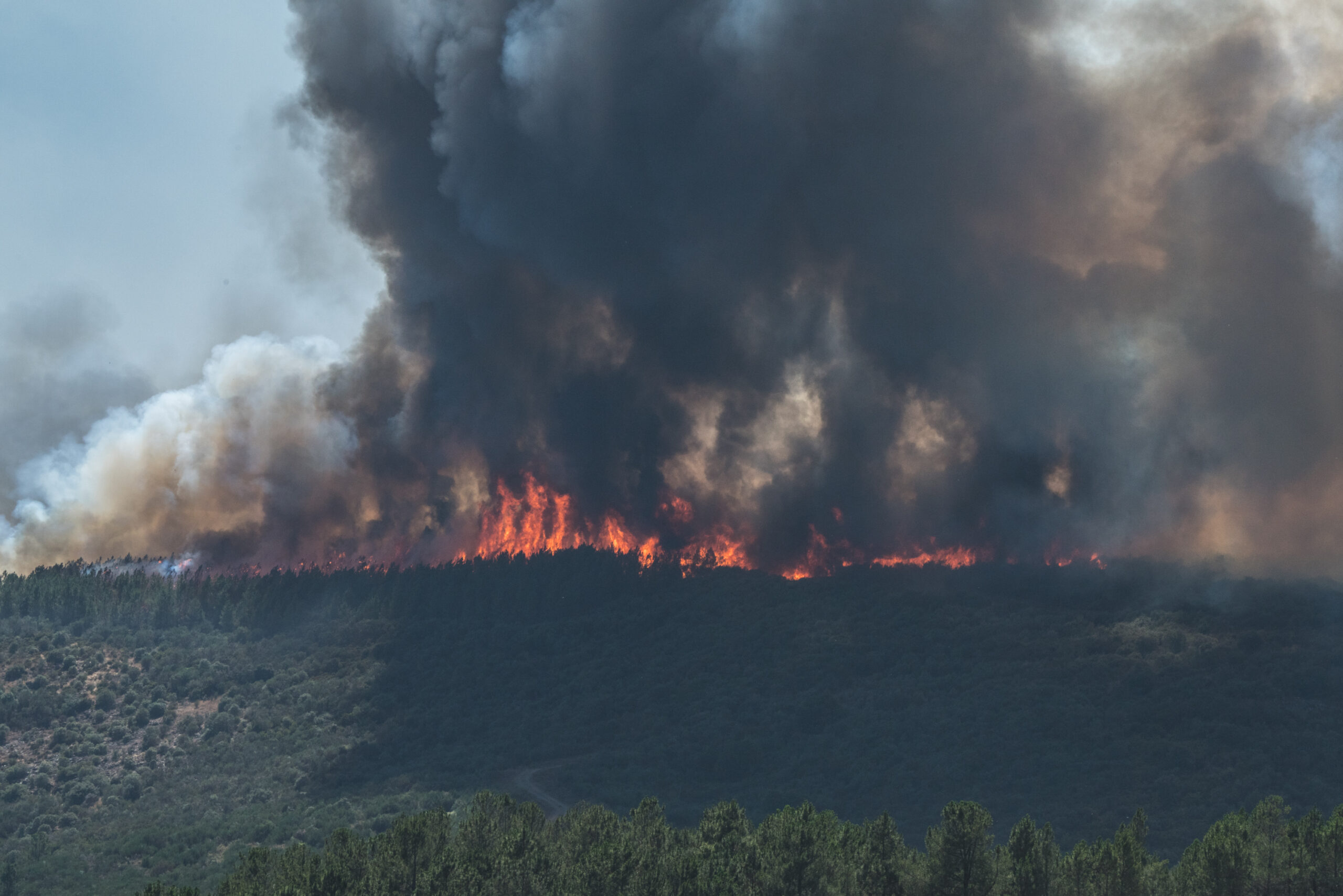After this summer’s environmental catastrophe in Serra da Estrela, in which at least 25 thousand hectares burned in successive fires over several weeks, it is essential to bring together all the interested parties in the territory and at the national level to prepare a serious and realistic proposal to the environmental recovery of the Serra da Estrela Natural Park. In this sense, Rewilding Portugal sent a proposal for urgent ecological restoration measures to several key actors in the territory and with responsibilities in this matter.

This year’s summer fires were of unprecedented severity and had huge impacts on the mountain’s ecosystems, which will lead to a substantial loss of the region’s natural capital if nothing is done immediately and with a long-term view. Rewilding Portugal supports the creation of a landscape that is more resilient to fire, more functional in terms of ecosystems, and more biodiverse and abundant in fauna and flora.
In this sense, Rewilding Portugal sent a proposal for urgent ecological restoration measures to several key players in the territory and with responsibilities in this matter – including all the municipal councils of Serra da Estrela, the ICNF and APA. This proposal includes short, medium and long term interventions with the aim of recovering Serra da Estrela and preventing these catastrophic fires from happening again in the future. Other measures were also included, some of which had already been used in similar situations before, which are not recommended for an effective recovery of Serra da Estrela.

Among the measures that Rewilding Portugal recommended for implementation in the short term (before the end of 2022), the cutting and disposal of dead wood for the construction of erosion prevention structures, namely in areas of greater slope, the realization of emergency seedbeds to prevent soil erosion and preserve the surviving fauna; intervene in affected watercourses to stimulate the growth of riparian vegetation and accelerate the recovery of these ecosystems; and also improve the capture of water in the landscape to prevent future wildfires with the construction of small ponds and areas of flooding in the landscape.
As for measures for implementation in the medium and long term (from 2023 onwards), the following stand out: maintenance and expansion of the fire prevention network by increasing herbivory and reintroduction of key species of wild and semi-wild herbivores, namely horses (eg Garrana), deer and mountain goats and also to increase the number of roe deer; the creation of a Integrated Forest Management Plan for Serra da Estrela for the next decade and that takes into account the climate change scenario expected for the future, ensuring the continuity of forest succession so that it can recover and become a area of high natural value in Portugal.

Finally, Rewilding Portugal advises against the following measures in this context: tree planting campaigns (the failure rate of these trees coming from greenhouses and mostly with slow growth is high and there is no long-term follow-up necessary for it to work, namely pines and pseudotsugas, and even native trees should only be planted in areas where the seed bank is too poor and where natural dispersal may take longer); and the construction of dams (these structures have negative environmental impacts, imply major changes in the landscape and are dependent on constant water flows to supply them).
Rewilding Portugal hopes that this document, and the extensively listed and explained/fundamented measures that it contains, can serve as support for decision-makers on how to act in the short, medium and long term in Serra da Estrela to ensure that in the future we have a mountain range more resilient and prosperous as is certainly everyone’s wish.

Above all, given the situation of environmental, social and economic calamity that the fires (especially in 2017 and 2022) caused, this should be seen as an opportunity to rethink the future of the Serra da Estrela Natural Park for the next 100 years.